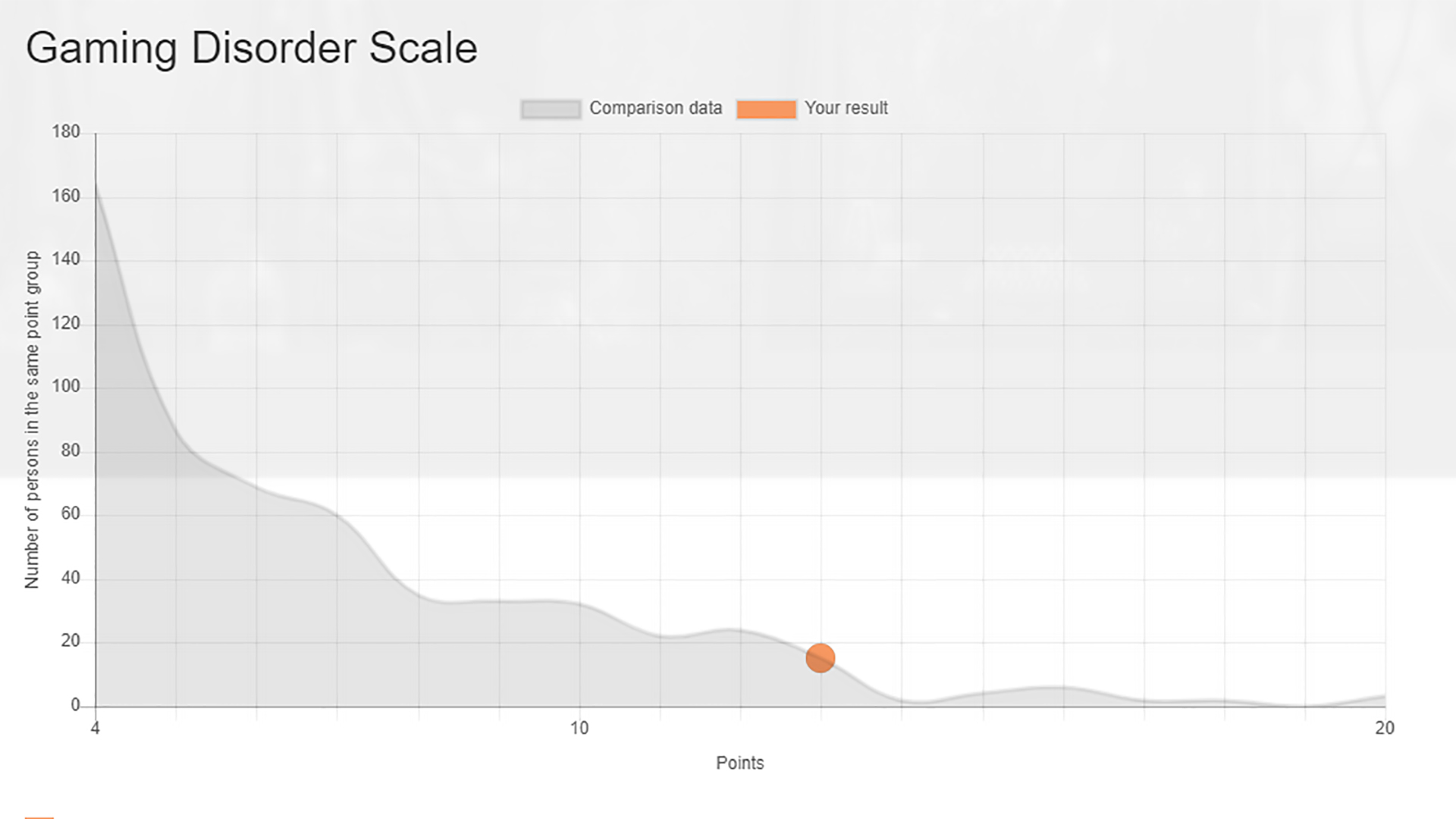
Last week the World Health Organization officially recognized "Gaming Disorder" as a disease. Videogame industry representatives are calling on WHO to rethink the decision, as it's a big, controversial step forward in analyzing how videogames affect our lives, relationships, and health. But what does it mean to actually have a Gaming Disorder, and how can you tell if you might have it?
WHO defines a Gaming Disorder as "a pattern of gaming behavior characterized by impaired control over gaming." The idea is that gaming has to take an "increasing priority" over other activities in your life even if you notice the negative side effects. Someone diagnosed with a Gaming Disorder will have severe impairment of personal, familial, social, educational, or occupational areas of their life due to their gaming habits—but these consequences have to be evident for at least 12 months to qualify. So, basically, have you noticed that gaming is taking over your life in the past 12 months to the detriment of your work, health, or relationships?
That question can be surprisingly tough to answer, which is why a Gaming Disorder, like any disease, needs a proper diagnosis from a qualified doctor. But a group of academics from the UK, China, and Australia have put together a self-diagnosis psychological test that anyone can take to determine if they might have a tendency towards Gaming Disorder. The survey, called "Do I Play Too Much Videogames?", asks a series of questions about your relationship with videogames (and also the internet in general) and then tells you if you match the criteria laid out by WHO for Gaming Disorder.
Naturally, a few of us at PC Gamer were eager to take it.
The results
To be clear, this survey isn't a substitute for a proper diagnosis, but it does analyze your gaming habits and assigns you a score. As the website explains, a score of five or more (the maximum is 20) indicates higher tendencies toward Gaming Disorder. What's interesting, though, is that this test also shows your score in relation to everyone else who has taken the test, so you can see how you compare to others. The survey also aims to provide some insight into what motivates you to play games and, if you choose to answer some extra questions at the end, even shows a basic personality profile.
So what did PC Gamer's editors score?
Looking across the board, every one of us tended to score higher on the spectrum. We're not too worried about that, considering videogames are our job so naturally we play them more often (and, like any job, occasionally prioritize it over other areas of our lives).
Keep up to date with the most important stories and the best deals, as picked by the PC Gamer team.

Be sure to click on each link so you can also compare our gaming motivations to your own.
Evan Lahti, global editor-in-chief: 13/20
Evan, like most of our team, scored higher than average for Gaming Disorder. He's also highly motivated by games that encourage competition and skill development, as well as the simple joy of playing games to kill time. That explains his gross amount of wins in Apex Legends, I guess.
Steven Messner, senior reporter: 12/20
Scoring just a hair less than Evan, Steven is also considered more likely to exhibit a Gaming Disorder. He scored comparatively lower in most gaming motivation areas but likes to kill boredom and enjoys the fantasy and competition of games.
Joanna Nelius, staff writer: 4/20
Joanna scored the lowest on the team and, according to the survey, isn't at risk of Gaming Disorder. She's also strongly motivated by games as a recreational tool.
Jarred Walton, senior editor: 10/20
Jarred's score is slightly lower than most of the PC Gamer team and, like Joanna, is almost exclusively motivated to play games as a form of recreation.
James Davenport, associate editor: 8/20
James also scored relatively lower than the rest of us but is more uniformly motivated by a variety of factors—except competition, because he doesn't need to prove himself to anyone.
Samuel Roberts, editor-in-chief, UK: 12/20
Sam's score was pretty close to the average for the team. More interestingly, he's the only one who is strongly motivated by games as a method of escapism.
Tim Clark, brand director: 13/20
Matching Evan, Tim's score rates at the top of the PC Gamer editors—but that only makes sense once you hear him talk about Destiny 2 or Hearthstone. He's motivated by games as a recreational activity but also scored highly towards games as a method of coping. Clearly it's tough at the top.
The results aren't all that surprising, given that videogames are such a big part of our lives. But we're interested in hearing what you think of your own score and the motivations that guide your gaming habits. If you want to, take the survey and then let us know in the comments.
The collective PC Gamer editorial team worked together to write this article. PC Gamer is the global authority on PC games—starting in 1993 with the magazine, and then in 2010 with this website you're currently reading. We have writers across the US, UK and Australia, who you can read about here.


